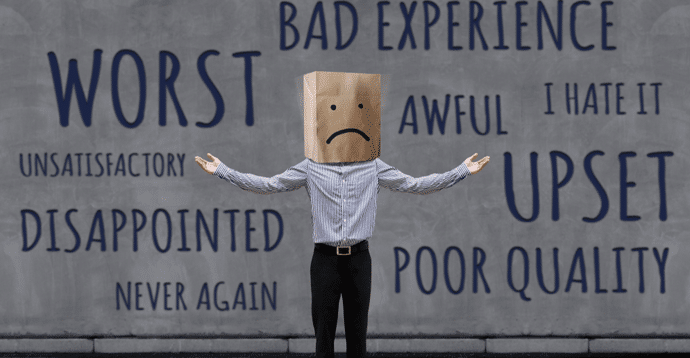The Worst Interview You Could Have Had
You are going to fail more interviews in your life than you will succeed in them. It’s a fact you need to admit to yourself before heading into any interview space, even when you think the job is wrapped up. Nothing is set in stone, and building a humble mindset pre-interview is healthy in how you analyse your post-interview position.
Every interview experience should be considered a learning curve in technique and communication, but it’s still worthwhile focusing on the provably worst things you could do in an interview. You need to a create a hit list of “DO NOT’s” to make sure every question answered, every introduction and even your parting manner are designed to be professional, welcoming, calm, collected and mature.
The most important thing to remember is to try and take everything in your stride, and see any “failure” as a lesson in growth.
Here are our Top 8 Interview Killers!
Know your Aim:
You need to clearly and concisely communicate exactly why you’re in the room with your interviewer. You need to show your awareness of your own skill set, your goals, the company need, and the demand for someone with your skills. Interviews are assessments for whether you fit the company profile and culture; they are not for you to step in and simply ask for a job.
Be aware of Power Dynamics:
You should neither be too pushy, nor too subservient. Interviews set a unique dynamic between the participants but you have every right to stand tall and proud, and communicate your value. Do not cheapen yourself, and do not demand above your skill set. Learn the fine art of compromise, but not at the cost of your value!
One Word Answers:
Interviews are full of questions, and you should be prepared with answers. But interviews are also conversations, so furnish your answers with questions and communicate openly.
Talking Too Much:
We analyze this in another section, but talking is mandatory in an interview. Talking a lot can be a sign of nerves (not a bad thing), passion (a good thing) or trying to cover a lie or embellish a falsity (a very bad thing). Try and find a balance that answers the questions succinctly but tells a story about how you work, your passion for the work and how you are good at what you do.
Assumptions:
Do not try and assume your interviewer needs a certain answer to a question if you don’t know the answer or don’t understand the question. Don’t guess at what your interviewer means. Effective interviewing is all about collecting information in real time, taking good notes, and responding only to the actual facts you’ve collected. If you find yourself making assumptions or guessing about something that was said, stop and ask for clarification before you answer.
Emotional Outbursts:
Unless your interview has seriously stepped into triggering territory (of which they may not be aware) or said something outwardly offensive, keeping your emotions in check are vital in setting a comforting environment for both interviewer and interviewee. Remain calm, communicate openly and if you feel you’ve been emotional wait until after the interview to address it with your recruiter or interviewer.
Neediness:
It’s not becoming, and desperation can be a sign of imbalance somewhere in the interviewee’s life. Although it’s not your interviewer’s job to ask questions like “are you desperate for this job” your position as a potential employee has to be one of “I want to be here” not “I need to be here”.
Treating company staff rudely:
Do not be rude to receptionists or door staff. Do not be aloof or distant to kind staff directing you around the company. Be open, willing to speak to staff, and set a great first impression. The staff will talk about you after you’ve left and you want that conversation to be positive.
The worst interview you could have had takes stock of a worst case scenario, but all the above points are managed by you. You need to take control of your actions and make sure you’re showing your prospective employer the very best of your character.

